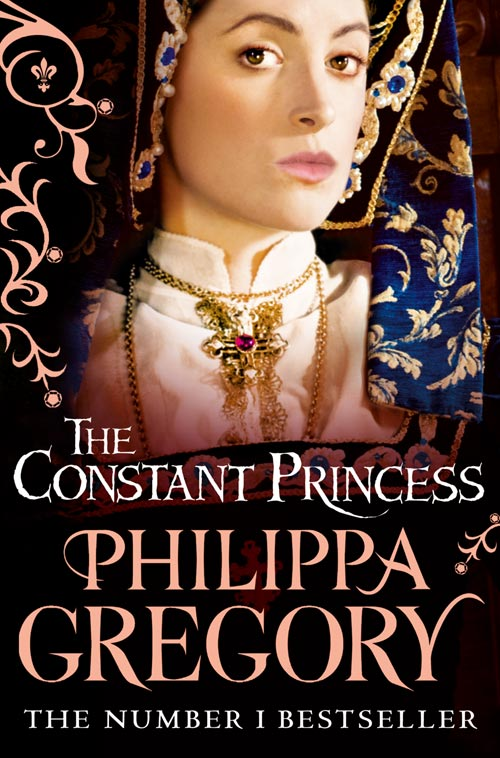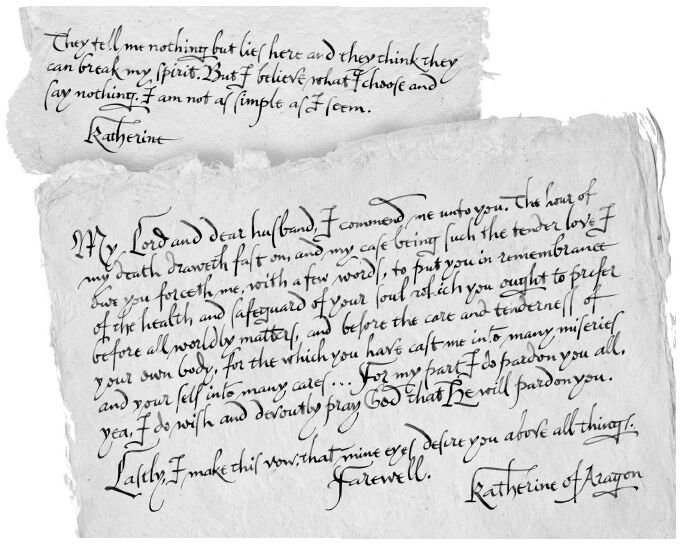
Полная версия
Philippa Gregory 3-Book Tudor Collection 1: The Constant Princess, The Other Boleyn Girl, The Boleyn Inheritance

PHILIPPA GREGORY
TUDOR COLLECTION VOLUME 1
The Constant Princess
The Other Boleyn Girl
The Boleyn Inheritance

Copyright
This novel is entirely a work of fiction. The names, characters and incidents portrayed in it, while based on historical events, are the work of the author’s imagination.
Harper
An imprint of HarperCollinsPublishers Ltd. 1 London Bridge Street London SE1 9GF
www.harpercollins.co.uk
First published in Great Britain by HarperCollins 2001, 2005, 2006
Copyright © Philippa Gregory Ltd 2001, 2005, 2006
Cover layout design © HarperCollinsPublishers Ltd
Philippa Gregory asserts the moral right to be identified as the author of this work
A catalogue record for this book is available from the British Library
All rights reserved under International and Pan-American Copyright Conventions. By payment of the required fees, you have been granted the non-exclusive, non-transferable right to access and read the text of this ebook on-screen. No part of this text may be reproduced, transmitted, downloaded, decompiled, reverse engineered, or stored in or introduced into any information storage and retrieval system, in any form or by any means, whether electronic or mechanical, now known or hereinafter invented, without the express written permission of HarperCollins ebooks
HarperCollinsPublishers has made every reasonable effort to ensure that any picture content and written content in this ebook has been included or removed in accordance with the contractual and technological constraints in operation at the time of publication
Source ISBNs:
The Constant Princess 9780007190317
The Other Boleyn Girl 9780006514008
The Boleyn Inheritance 9780007190331
Ebook Edition © JULY 2013 ISBN: 9780007518739
Version: 2016-10-06
Contents
Cover
Title Page
Copyright
The Constant Princess
The Other Boleyn Girl
The Boleyn Inheritance
Keep Reading
About the Author
Also by Philippa Gregory
About the Publisher

PHILIPPA GREGORY
THE CONSTANT PRINCESS

Dedication
For Anthony
Contents
Title Page
Dedication
Letters
Princess of Wales
Granada, 1491
Dogmersfield Palace, Hampshire, Autumn 1501
London, Winter 1501
Ludlow Castle, Spring 1502
Summer 1502
Princess in Waiting
Winter 1503
Princess Again
1504
1509
Katherine, Queen of England
Summer 1509
Autumn 1509
Spring 1510
Winter 1510
Spring 1511
Summer 1511
Autumn 1511
Spring 1512
Summer 1512
Winter 1512
Spring 1513
Summer 1513
Blackfriars Hall The Papal Legate sitting as a court to hear the King’s Great Matter, June 1529
Author’s Note
Letters

Granada, 1491
There was a scream, and then the loud roar of fire enveloping silken hangings, then a mounting crescendo of shouts of panic that spread and spread from one tent to another as the flames ran too, leaping from one silk standard to another, running up guy ropes and bursting through muslin doors. Then the horses were neighing in terror and men shouting to calm them, but the terror in their own voices made it worse, until the whole plain was alight with a thousand raging blazes, and the night swirled with smoke and rang with shouts and screams.
The little girl, starting up out of her bed in her fear, cried out in Spanish for her mother and screamed: ‘The Moors? Are the Moors coming for us?’
‘Dear God, save us, they are firing the camp!’ her nurse gasped. ‘Mother of God, they will rape me, and spit you on their sickle blades.’
‘Mother!’ cried the child, struggling from her bed. ‘Where is my mother?’
She dashed outside, her nightgown flapping at her legs, the hangings of her tent now alight and blazing up behind her in an inferno of panic. All the thousand, thousand tents in the camp were ablaze, sparks pouring up into the dark night sky like fiery fountains, blowing like a swarm of fireflies to carry the disaster onwards.
‘Mother!’ She screamed for help.
Out of the flames came two huge, dark horses, like great, mythical beasts moving as one, jet black against the brightness of the fire. High up, higher than one could dream, the child’s mother bent down to speak to her daughter who was trembling, her head no higher than the horse’s shoulder. ‘Stay with your nurse and be a good girl,’ the woman commanded, no trace of fear in her voice. ‘Your father and I have to ride out and show ourselves.’
‘Let me come with you! Mother! I shall be burned. Let me come! The Moors will get me!’ The little girl reached her arms up to her mother.
The firelight glinted weirdly off the mother’s breastplate, off the embossed greaves of her legs, as if she were a metal woman, a woman of silver and gilt, as she leaned forwards to command. ‘If the men don’t see me, then they will desert,’ she said sternly. ‘You don’t want that.’
‘I don’t care!’ the child wailed in her panic. ‘I don’t care about anything but you! Lift me up!’
‘The army comes first,’ the woman mounted high on the black horse ruled. ‘I have to ride out.’
She turned her horse’s head from her panic-stricken daughter. ‘I will come back for you,’ she said over her shoulder. ‘Wait there. I have to do this now.’
Helpless, the child watched her mother and father ride away. ‘Madre!’ she whimpered. ‘Madre! Please!’ but the woman did not turn.
‘We will be burned alive!’ Madilla, her servant, screamed behind her. ‘Run! Run and hide!’
‘You can be quiet.’ The child rounded on her with sudden angry spite. ‘If I, the Princess of Wales herself, can be left in a burning campsite, then you, who are nothing but a Morisco anyway, can certainly endure it.’
She watched the two horses go to and fro among the burning tents. Everywhere they went the screams were stilled and some discipline returned to the terrified camp. The men formed lines, passing buckets all the way to the irrigation channel, coming out of terror back into order. Desperately, their general ran among his men, beating them with the side of his sword into a scratch battalion from those who had been fleeing only a moment before, and arrayed them in defence formation on the plain, in case the Moors had seen the pillar of fire from their dark battlements, and sallied out to attack and catch the camp in chaos. But no Moors came that night; they stayed behind the high walls of their castle and wondered what fresh devilry the mad Christians were creating in the darkness, too fearful to come out to the inferno that the Christians had made, suspecting that it must be some infidel trap.
The five-year-old child watched her mother’s determination conquer fire itself, her queenly certainty douse panic, her belief in success overcome the reality of disaster and defeat. The little girl perched on one of the treasure chests, tucked her nightgown around her bare toes, and waited for the camp to settle.
When the mother rode back to her daughter she found her dry-eyed and steady.
‘Catalina, are you all right?’ Isabella of Spain dismounted and turned to her youngest, most precious daughter, restraining herself from pitching to her knees and hugging the little girl. Tenderness would not raise this child as a warrior for Christ, weakness must not be encouraged in a princess.
The child was as iron-spined as her mother. ‘I am all right now,’ she said.
‘You weren’t afraid?’
‘Not at all.’
The woman nodded her approbation. ‘That is good,’ she said. ‘That is what I expect of a princess of Spain.’
‘And Princess of Wales,’ her daughter added.

This is me, this little five-year-old girl, perching on the treasure chest with a face white as marble and blue eyes wide with fear, refusing to tremble, biting my lips so I don’t cry out again. This is me, conceived in a camp by parents who are rivals as well as lovers, born in a moment snatched between battles in a winter of torrential floods, raised by a strong woman in armour, on campaign for all of my childhood, destined to fight for my place in the world, to fight for my faith against another, to fight for my word against another’s: born to fight for my name, for my faith and for my throne. I am Catalina, Princess of Spain, daughter of the two greatest monarchs the world has ever known: Isabella of Castile and Ferdinand of Aragon. Their names are feared from Cairo to Baghdad to Constantinople to India and beyond by all the Moors in all their many nations: Turks, Indians, Chinamen; our rivals, admirers, enemies till death. My parents’ names are blessed by the Pope as the finest kings to defend the faith against the might of Islam, they are the greatest crusaders of Christendom as well as the first kings of Spain; and I am their youngest daughter, Catalina, Princess of Wales, and I will be Queen of England.
Since I was a child of three I have been betrothed in marriage to Prince Arthur, son of King Henry of England, and when I am fifteen I shall sail to his country in a beautiful ship with my standard flying at the top of the mast, and I shall be his wife and then his queen. His country is rich and fertile – filled with fountains and the sound of dripping water, ripe with warm fruits and scented with flowers; and it will be my country, I shall take care of it. All this has been arranged almost since my birth, I have always known it will be; and though I shall be sorry to leave my mother and my home, after all, I was born a princess, destined to be queen, and I know my duty.
I am a child of absolute convictions. I know that I will be Queen of England because it is God’s will, and it is my mother’s order. And I believe, as does everyone in my world, that God and my mother are generally of the same mind; and their will is always done.

In the morning the campsite outside Granada was a dank mess of smouldering hangings, destroyed tents, heaps of smoky forage, everything destroyed by one candle carelessly set. There could be nothing but retreat. The Spanish army had ridden out in its pride to set siege to the last great kingdom of the Moors in Spain, and had been burned to nothing. It would have to ride back again, to regroup.
‘No, we don’t retreat,’ Isabella of Spain ruled.
The generals, called to a makeshift meeting under a singed awning, batted away the flies that were swarming around the camp, feasting off the wreckage.
‘Your Majesty, we have lost for this season,’ one of the generals said gently to her. ‘It is not a matter of pride nor of willingness. We have no tents, we have no shelter, we have been destroyed by ill luck. We will have to go back and provision ourselves once more, set the siege again. Your husband –’ he nodded to the dark, handsome man who stood slightly to one side of the group, listening ’– he knows this. We all know this. We will set the siege again, they will not defeat us. But a good general knows when he has to retreat.’
Every man nodded. Common sense dictated that nothing could be done but release the Moors of Granada from their siege for this season. The battle would keep. It had been coming for seven centuries. Each year had seen generations of Christian kings increase their lands at the cost of the Moors. Every battle had pushed back the time-honoured Moorish rule of al Andalus a little further to the south. Another year would make no difference. The little girl, her back against a damp tent post that smelled of wet embers, watched her mother’s serene expression. It never changed.
‘Indeed it is a matter of pride,’ she corrected him. ‘We are fighting an enemy who understands pride better than any other. If we crawl away in our singed clothes, with our burned carpets rolled up under our arms, they will laugh themselves to al-Yanna, to their paradise. I cannot permit it. But more than all of this: it is God’s will that we fight the Moors, it is God’s will that we go forwards. It is not God’s will that we go back. So we must go forwards.’
The child’s father turned his head with a quizzical smile but he did not dissent. When the generals looked to him he made a small gesture with his hand. ‘The queen is right,’ he said. ‘The queen is always right.’
‘But we have no tents, we have no camp!’
He directed the question to her. ‘What do you think?’
‘We shall build one,’ she decided.
‘Your Majesty, we have laid waste to the countryside for miles all around. I daresay we could not sew so much as a kamiz for the Princess of Wales. There is no cloth. There is no canvas. There are no watercourses, no crops in the fields. We have broken the canals and ploughed up the crops. We have laid them waste; but it is we that are destroyed.’
‘So we build in stone. I take it we have stone?’
The king turned a brief laugh into clearing his throat. ‘We are surrounded by a plain of arid rocks, my love,’ he said. ‘One thing we do have is stone.’
‘Then we will build, not a camp, but a city of stone.’
‘It cannot be done!’
She turned to her husband. ‘It will be done,’ she said. ‘It is God’s will and mine.’
He nodded. ‘It will be done.’ He gave her a quick, private smile. ‘It is my duty to see that God’s will is done; and my pleasure to enforce yours.’

The army, defeated by fire, turned instead to the elements of earth and water. They toiled like slaves in the heat of the sun and the chill of the evenings. They worked the fields like peasants where they had thought they would triumphantly advance. Everyone, cavalry officers, generals, the great lords of the country, the cousins of kings, was expected to toil in the heat of the sun and lie on hard, cold ground at night. The Moors, watching from the high, impenetrable battlements of the red fort on the hill above Granada, conceded that the Christians had courage. No-one could say that they were not determined. And equally, everyone knew that they were doomed. No force could take the red fort at Granada, it had never fallen in two centuries. It was placed high on a cliff, overlooking a plain that was itself a wide, bleached bowl. It could not be surprised by a hidden attack. The cliff of red rock that towered up from the plain became imperceptibly the walls of red stone of the castle, rising high and higher; no scaling ladders could reach the top, no party could climb the sheer face.
Perhaps it could be betrayed by a traitor; but what fool could be found who would abandon the steady, serene power of the Moors, with all the known world behind them, with an undeniable faith to support them, to join the rabid madness of the Christian army whose kings owned only a few mountainous acres of Europe and who were hopelessly divided? Who would want to leave al-Yanna, the garden, which was the image of paradise itself, inside the walls of the most beautiful palace in Spain, the most beautiful palace in Europe, for the rugged anarchy of the castles and fortresses of Castile and Aragon?
Reinforcements would come for the Moors from Africa, they had kin and allies from Morocco to Senegal. Support would come for them from Baghdad, from Constantinople. Granada might look small compared with the conquests that Ferdinand and Isabella had made, but standing behind Granada was the greatest empire in the world – the empire of the Prophet, praise be his name.
But, amazingly, day after day, week after week, slowly, fighting the heat of the spring days and the coldness of the nights, the Christians did the impossible. First there was a chapel built in the round like a mosque, since the local builders could do that most quickly; then, a small house, flat-roofed inside an Arabic courtyard, for King Ferdinand, Queen Isabella and the royal family: the Infante, their precious son and heir, the three older girls, Isabel, Maria, Juana, and Catalina the baby. The queen asked for nothing more than a roof and walls, she had been at war for years, she did not expect luxury. Then there were a dozen stone hovels around them where the greatest lords reluctantly took some shelter. Then, because the queen was a hard woman, there were stables for the horses and secure stores for the gunpowder and the precious explosives for which she had pawned her own jewels to buy from Venice; then, and only then, were built barracks and kitchens, stores and halls. Then there was a little town, built in stone, where once there had been a little camp. No-one thought it could be done; but, bravo! it was done. They called it Santa Fe and Isabella had triumphed over misfortune once again. The doomed siege of Granada by the determined, foolish Christian kings would continue.

Catalina, Princess of Wales, came upon one of the great lords of the Spanish camp in whispered conference with his friends. ‘What are you doing, Don Hernando?’ she asked with all the precocious confidence of a five-year-old who had never been far from her mother’s side, whose father could deny her very little.
‘Nothing, Infanta,’ Hernando Perez del Pulgar said with a smile that told her that she could ask again.
‘You are.’
‘It’s a secret.’
‘I won’t tell.’
‘Oh! Princess! You would tell. It is such a great secret! Too big a secret for a little girl.’
‘I won’t! I really won’t! I truly won’t!’ She thought. ‘I promise upon Wales.’
‘On Wales! On your own country?’
‘On England?’
‘On England? Your inheritance?’
She nodded. ‘On Wales and on England, and on Spain itself.’
‘Well, then. If you make such a sacred promise I will tell you. Swear that you won’t tell your mother?’
She nodded, her blue eyes wide.
‘We are going to get into the Alhambra. I know a gate, a little postern gate, that is not well guarded, where we can force an entry. We are going to go in, and guess what?’
She shook her head vigorously, her auburn plait swinging beneath her veil like a puppy’s plump tail.
‘We are going to say our prayers in their mosque. And I am going to leave an Ave Maria stabbed to the floor with my dagger. What d’you think of that?’
She was too young to realise that they were going to a certain death. She had no idea of the sentries at every gate, of the merciless rage of the Moors. Her eyes lit up in excitement. ‘You are?’
‘Isn’t it a wonderful plan?’
‘When are you going?’
‘Tonight! This very night!’
‘I shan’t sleep till you come back!’
‘You must pray for me, and then go to sleep, and I will come myself, Princess, and tell you and your mother all about it in the morning.’
She swore she would never sleep and she lay awake, quite rigid in her little cot-bed, while her maid tossed and turned on the rug at the door. Slowly, her eyelids drooped until the lashes lay on the round cheeks, the little plump hands unclenched and Catalina slept.
But in the morning, he did not come, his horse was missing from its stall and his friends were absent. For the first time in her life, the little girl had some sense of the danger he had run – mortal danger, and for nothing but glory and to be featured in some song.
‘Where is he?’ she asked. ‘Where is Hernando?’
The silence of her maid, Madilla, warned her. ‘He will come?’ she asked, suddenly doubtful. ‘He will come back?’

Slowly, it dawns on me that perhaps he will not come back, that life is not like a ballad, where a vain hope is always triumphant and a handsome man is never cut down in his youth. But if he can fail and die, then can my father die? Can my mother die? Can I? Even I? Little Catalina, Infanta of Spain and Princess of Wales?
I kneel in the sacred circular space of my mother’s newly built chapel; but I am not praying. I am puzzling over this strange world that is suddenly opening up before me. If we are in the right – and I am sure of that; if these handsome young men are in the right – and I am sure of that – if we and our cause are under the especial hand of God, then how can we ever fail?
But if I have misunderstood something, then something is very wrong, and we are all indeed mortal, perhaps we can fail. Even handsome Hernando Perez del Pulgar and his laughing friends, even my mother and father can fail. If Hernando can die, then so too can my mother and father. And if this is so, then what safety is there in the world? If Madre can die, like a common soldier, like a mule pulling a baggage cart, as I have seen men and mules die, then how can the world go on? How could there be a God?

Then it was time for her mother’s audience for petitioners and friends, and suddenly he was there, in his best suit, his beard combed, his eyes dancing, and the whole story spilled out: how they had dressed in their Arab clothes so as to pass for townspeople in the darkness, how they had crept in through the postern gate, how they had dashed up to the mosque, how they had kneeled and gabbled an Ave Maria and stabbed the prayer into the floor of the mosque, and then, surprised by guards, they had fought their way, hand to hand, thrust and parry, blades flashing in the moonlight; back down the narrow street, out of the door that they had forced only moments earlier, and were away into the night before the full alarm had been sounded. Not a scratch on them, not a man lost. A triumph for them and a slap in the face for Granada.









